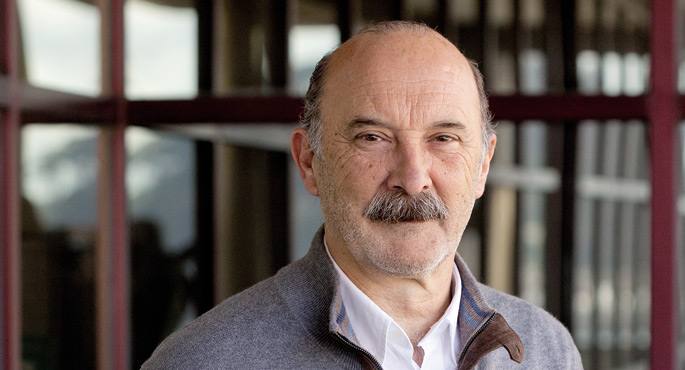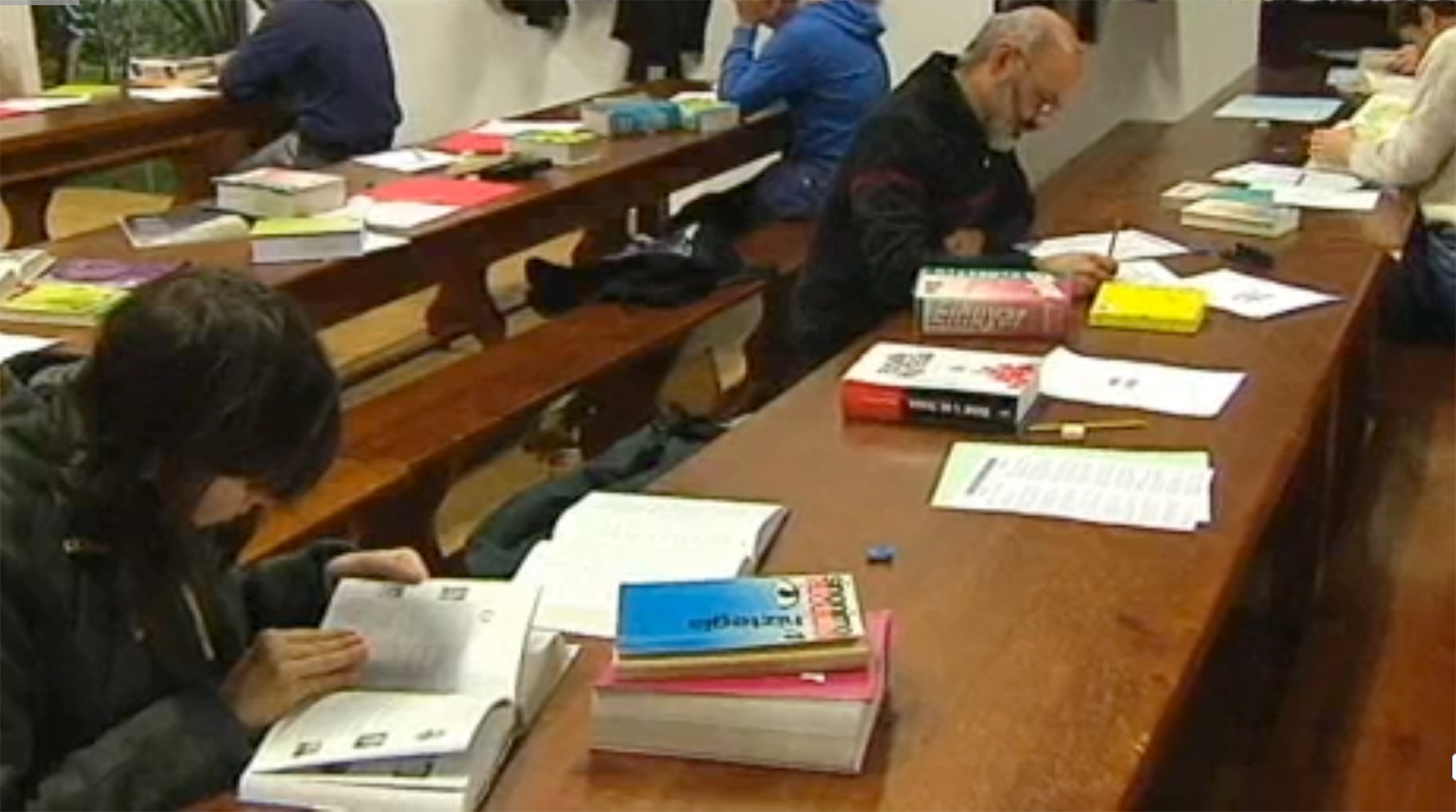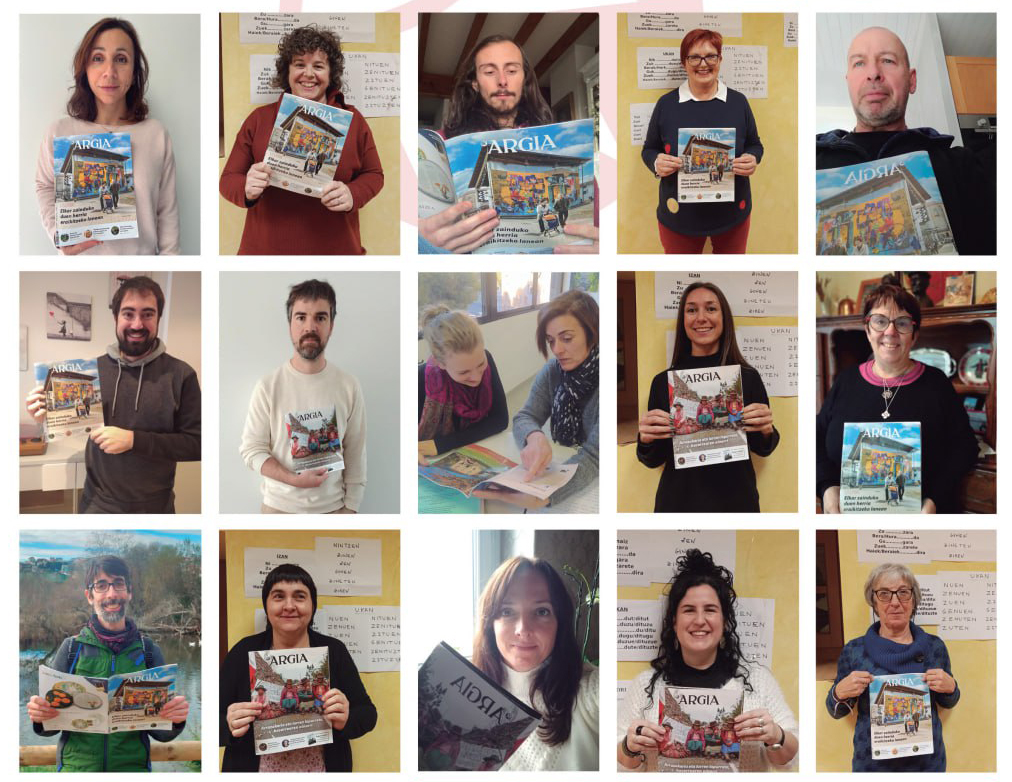"HABE was like fossilized."
- HABE made a strategic plan last year. Private Euskaltegis demand stable funding. The number of pupils is expected to fall and new markets will have to be found in the euro area. The director explains how he is going to deal with demands and changes.

HABE presented its strategic plan in September 2011. What would I highlight?
The important thing has been to put forward the strategic plan itself. In 2008, HABE was 25 years old. No strategic plan has been drawn up in all these years.
Why have you made the strategic plan?
We saw that the organization was fossilized, it had a very old dynamic, very undynamic. We didn't see HABE having so much desire to change the process of Euskaldunization. On the other hand, the new government had that purpose for all departments. After 30 years of sending others, we wanted to think about what's good and what's bad to keep going with the good and avoid the bad. The same is true of this institution.
How did you make the plan?
The participation has been high, with the participation of interior technicians, Euskaltegis, faculty and students. Everyone has been asked what they would change, that has been the starting point. For example, the teachers were asked how they saw their situation, their future, what the relationship was with HABE, whether the regulations had to be adapted in order to be able to access the grant. Because the HABE regulation is very old.
What does it mean when it says that the regulation is old?
Among other things, we saw that HABE was sending everything, regulating and regulating everything with the Euskaltegis. That's why we've gone to the Euskaltegis and the teachers have said right away that the thing is like this, that they don't have much participation. They tell us that they want greater participation and stable funding.
What does stable funding mean?
Municipal Euskaltegis are, to put it another way, officials. The professors of private Euskaltegis are not in that situation and have asked us to compensate for the difference between the two types of professors. If the teacher doesn't have stability, if he doesn't have social recognition, a couple of years ago and walks, he takes his experience abroad. It is detrimental to education.
You were in touch with the Euskaltegis to make the strategic plan. After the plan, since the end of last year, you continue to hold meetings with the Euskaltegis. What have you been asked for?
There are two issues: that Euskaltegis should play a greater role in granting accreditation to students and that funding should be stable.
How can Euskaltegis play a greater role in accreditation?
Until now, the tests were performed by HABE and he himself checked them. Euskaltegis have asked us to participate in the accreditation and we will do so from now on. They will do the tests and propose the evaluations and if we see that this Basque Country complies with the guidelines of HABE, we will accept those evaluations. For example, in the assessments of the oral and written comprehension exams we have a coincidence of 83% [the student performs the level examination prepared by the Euskaltegi and then comes the official examination of the hand of HABE]. Why are we going to continue to do the same? When the Euskaltegis prove it, we will confirm it. We will give the choice to all Euskaltegis.
What are they asking for in terms of funding?
It is a difficult issue. We too have been cut back on the budget, we have had to make adjustments to give Euskaltegis the same amount as last year.
One year can be saved, but Euskaltegis will be concerned to move forward.
The lehendakari was very concerned and called us representatives of HABE, HPS, the Department of Culture and the Euskaltegis. In the history of HABE, representatives of the Euskaltegis have never occurred. The teachers explained their problems and lehendakari said he understood the problem and promised us to study a certain stability. We have made a proposal to the Euskaltegis, which in their view may not be the most appropriate, but we have the doors open, we are prepared to listen to any proposal.
What has HABE proposed?
We estimate that in a few years we will have 30% fewer students. We have taken into account the teachers needed to attend to a number of students that is reduced by 30%. The aim is to ensure the salary of that amount and to provide the necessary subsidies for its operation.
You have therefore done the calculation with fewer teachers than the current ones.
In private Euskaltegis, not all professors are fixed, around 30% have a temporary contract. If we had 70 percent ... Now we will discuss all of that with the Euskaltegis.
You say that in the coming years the number of pupils will fall. What do you anticipate?
The work done by the Euskaltegis has been very good, they have Euskaldunized many people and there are more and more people without the need to Euskaldunize. Also all the people who come from the ikastolas, perhaps not up to what we would like, but it is translated into Euskera. And the decree that will exempt from obtaining accreditation will be put into effect from one moment to the next. This is going to influence. The same is true of the employees of the administration, they go less and less to the Euskaltegi because they are increasingly Euskaldunifying, and on the other hand, the economic situation makes the entry of workers into the administration less.
How will the decree affect?
People started saying these things. “I will wait, I will not enroll my daughter to prepare the test. I will wait for the decree to come out.”
Fewer and fewer students, fewer and fewer hours.
In the Strategic Plan, students have called for the reduction of intensive courses and long courses. People want to devote less and less to it. Online courses can help us reduce classroom hours. By the way, the on-line system so far was obsolete, we will replace the Boga system that existed until now.
Students are getting bigger and bigger.
As the number of young people decreases, the number of those over 45 years of age increases. The problem is that from a certain age it is very difficult to learn the language. It needs to be studied well. Sometimes we think that this form of teaching is useless. The Administration does not ask the Basque profile for those over 45 years of age.
But that student will also have to be taken into account...
Yes, yes. He cannot deny him the opportunity. If it's 200-300 and you learn, you'll have to value one.
In the event that the number of Euskaltegis students is reduced due to the Euskaldunization of young people, what will be the new type of students?
Unemployed youth. They are concerned about job search, they are in Lanbide and in such organisations and from there we will attack. We want the courses taught by professionals to have the opportunity to learn Basque. Today, knowing Basque helps a lot in the search for employment. It can be an interesting market the group of unemployed people from 20 to 25 years of 40-45 years. We're working on that idea.
Another market?
The use should be handled. At the moment, the HABE regulations do not tell us that this type of typologies should be supported, but someday we will have to go around to find the students, because something happens and something will happen: the online system has a very important problem, the practice of oral expression is very scarce. Euskaltegis will have to adapt to organize oral practice especially, barnetegis will be very important in the future.
It is not Christmas, however, there will soon be decorations in the big shops to announce it, or at least they say so. In the shop window “Zorionak! Claims like “Gabon ederra passes!” will be exposed everywhere. However, congratulations can be many: the lottery, bringing a... [+]
Badira sei-zazpi urte kartzelan dauden presoek euskara ikasteko duten eskubidea bermatzeko helburuarekin, lanean aritu den euskara-irakasleen sare bat: Presoen Euskara Irakasleen Taldea.























